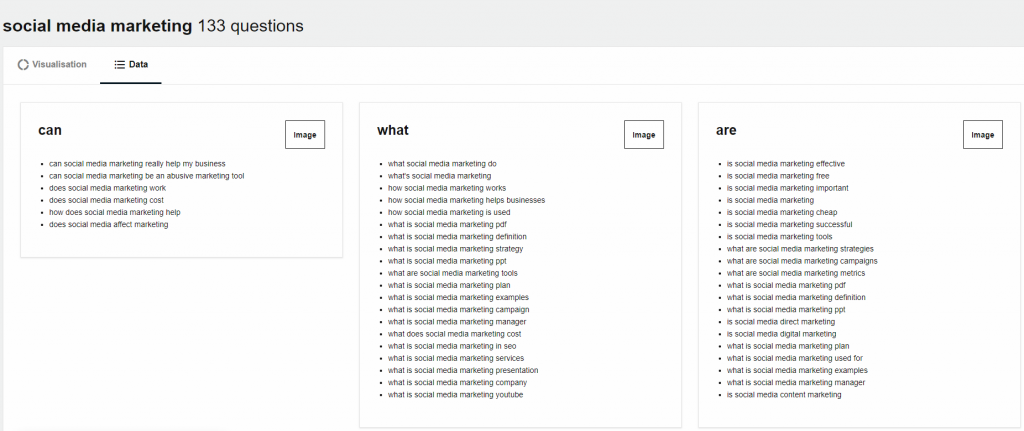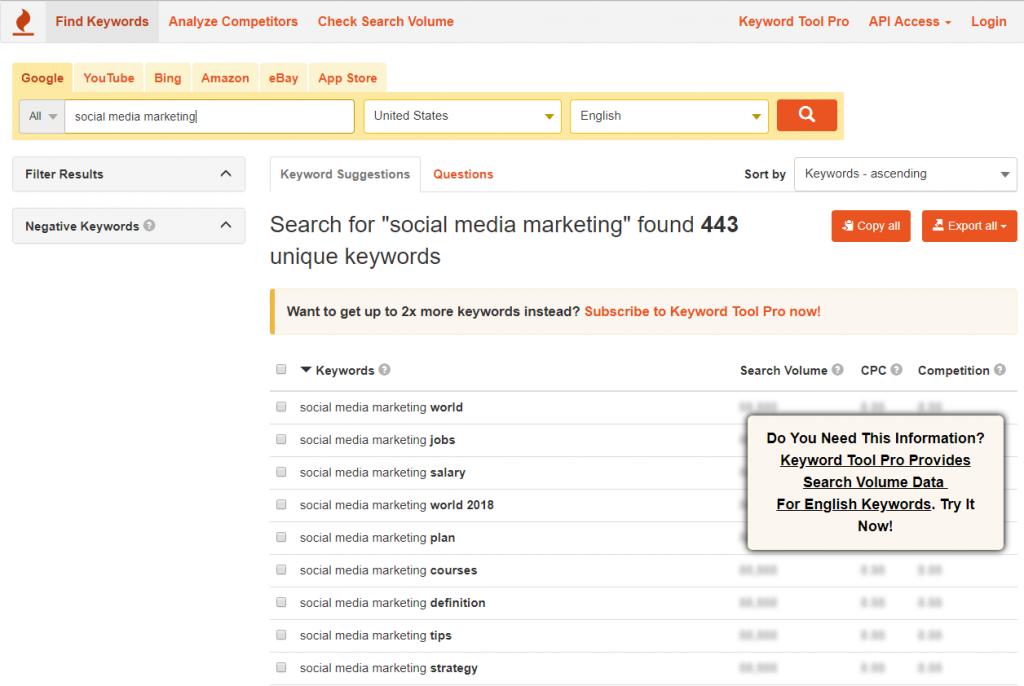
This post was originally published 1/28/2008 and was updated on 4/17/2018.
In the years since the first iteration of this post in 2008, keyword research and SEO in general has changed dramatically. Google’s algorithm has gotten more and more sophisticated, looking more at topics than keywords. This has led many to believe whether keywords even matter.
On top of that, Google has made keyword data more elusive. You used to be able to easily tell which keywords were driving traffic to your site. Now very little search traffic is attributed to search queries, with most traffic being labeled as “not provided” in Google Analytics.
While this may lead you to conclude that keyword research no longer matters, I argue that it has never mattered more. It’s critical to understanding how visitors refer to your products and services. But now instead of finding keywords to strategically repeat through our content, we should now be using these phrases to build authoritative content that thoroughly covers the topic and intent conveyed through those keywords.
Top Keyword Tools
So if keywords still matter that means we still need tools to uncover them. There are so many options for keyword research, we couldn’t possibly review them all. This list includes our favorites that we use on almost a daily basis for Pole Position Marketing and our clients as well as some other tools highly regarded in the industry. While the tactics may have changed, many of these tools are the same ones we recommended back in 2008.
- Google AdWords Keyword Planner – Formerly known as the Google AdWords Keyword Tool, this is still the go-to tool for many SEOs. When you enter a keyword phrase, it will give you the estimated search volume and difficulty for that phrase and for other suggested keywords. Price: Free
- Google Search Console – Formerly Google Webmaster Tools. The Queries report shows you which search phrases you actually rank for, and the clicks, impressions, and CTR for those queries. Price: Free
- Google Suggest – Start typing a keyword phrase you think is relevant in the Google search box. It will suggest variations and qualifiers that can give you alternative or additional keyword phrases. Price: Free

- Google Trends – This is great for predicting the future of a search term’s popularity, showing you how the search volume has increased or decreased over time. If you see that a search term is on the upward swing, it might be ripe for optimization. If it’s on the downward slide, you may want to try other variations. It also provides “related queries” that can give you additional ideas. Price: Free
- Answer the Public – I love using this one to guide my blog writing. It shows you what questions are being asked for a certain topic. This provides a great list of long-tail keywords and can give you blog and FAQ section ideas. Price: Free

- SEMrush – This competitive research tool is great for finding out which keyword phrases your competitors are ranking for. Plus, you can use it for brand monitoring, competitive ad research, backlink research, and more. Price: Plans range from $100-$400 per month.
- Moz Keyword Explorer – Moz’s powerful SEO platform includes this keyword tool, which can help you discover keyword ideas and find out what keywords you are already ranking for. It also helps with brand monitoring, link research, detecting site crawl issues, and more. Price: Plans range from $99-599 per month.
- Ahrefs – Another popular, multi-function platform, Ahrefs provides great suggestions and some data not provided by other tools such as the percentage of clicks per search. It is also great for researching competitor keywords. Price: Plans range from $99-999 per month.
- Keywordtool.io – This tool automates the Google Suggest process of finding keywords, providing long-tail keyword suggestions for your query. Pro versions include more information, such as search volume, cost-per-click, and competition data. Price: Free with pro versions ranging from $48-88 per month.

The Problem With Keyword Tools
With all that said, there is one huge caveat: Keyword tools inherently suck. OK, maybe that’s a little harsh. But they are highly flawed.
If you’ve done much keyword research, you probably already know what I’m talking about. You look up three different keywords in three different tools and you’ll likely get three different search volumes, differing sometimes by hundreds of percent!
It’s even worse when you’re looking at low-volume keywords. A lot of them simply aren’t recorded.
So what does this mean? Do you throw out the keyword tool with the bathwater?
No. These tools can still help you uncover terms you wouldn’t have thought of otherwise. The point, though, is that you have to take the data with a grain of salt. Make sure you are analyzing the results of your optimization efforts in Google Analytics and make adjustments where necessary. As the saying goes, “trust, but verify.” Emphasis on the verify.
Now What?
OK, so you’ve run these tools and come up with your list of keywords. Now you have to organize them and come up with an optimization plan. This is a whole other task all on its own, and it requires its own tool.
Fortunately, I’ve got you covered. Check out my Keyword Ebook and Spreadsheet Tool. The ebook will take you step-by-step through the entire process, and the spreadsheet tool allows you to import keywords from online keyword tools, automatically eliminate duplicate keywords, and easily sort and manipulate the data.
Download Ebook and Tool

7 Responses to 9 Best Keyword Research Tools to Optimize Sites Today